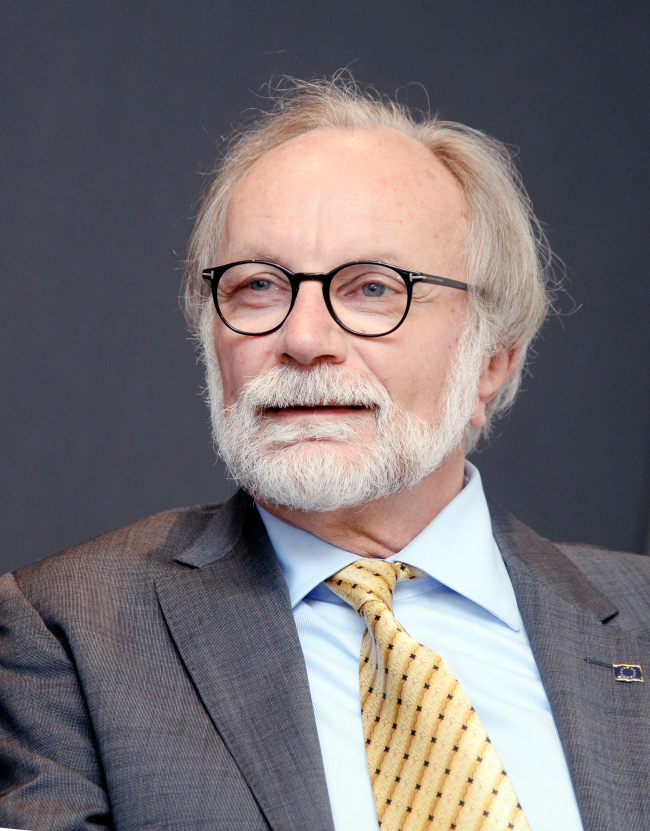European Union Ambassador Michael Reiterer on Wednesday congratulated Korea on the 30th anniversary of its accession to the UNESCO World Heritage Convention, at the same time introducing Europe’s vibrant and thriving cultural promotional initiative.
“The Republic of Korea is doing outstanding work in relation to the reuse of industrial and military heritage sites, as well as participative governance of cultural heritage,” Reiterer said at an international seminar in Seoul marking the anniversary.
“I have visited 5 beautiful places in Korea out of the 12 listed in UNESCO, including Bulguksa Temple and Andong Hahoe Folk Village. They have taught me about not just Korea’s history, but also its language, stories, values and zeitgeists passed down over generations.”
“The Republic of Korea is doing outstanding work in relation to the reuse of industrial and military heritage sites, as well as participative governance of cultural heritage,” Reiterer said at an international seminar in Seoul marking the anniversary.
“I have visited 5 beautiful places in Korea out of the 12 listed in UNESCO, including Bulguksa Temple and Andong Hahoe Folk Village. They have taught me about not just Korea’s history, but also its language, stories, values and zeitgeists passed down over generations.”

The envoy also used the occasion to present the main ideas of the 2018 European Year of Cultural Heritage, which celebrates the promotion of Europe’s cultural heritage and its shared sense of identity under the motto, “Our heritage: Where the past meets the future.”
“Culture should be part of foreign policy. Cultural heritage is not just about the past, but the future, which stands on the past,” the envoy said. “The 2018 European Year of Cultural Heritage is not only an opportunity to celebrate the past, but also to reflect on the future of our heritage and our relation to it, including the promotion of inter-cultural dialogue.”
Cultural heritage and creative industries have proven essential to economic development and job creation, he added.
The EU is home to some 37 percent of all UNESCO World Heritage sites. The supranational institution has implemented some 40 projects around the world with UNESCO, and the cooperation has been gaining momentum since 2011.
The 28 EU member states, various EU institutions, civil society organizations and academic institutions are working on various cultural projects for this year, cutting across education, research and innovation, technology, environmental conservation, civic engagement, festivals and films.
“The year shall provide an open space for dialogue and community-making. It shall be open to the public and other areas of the world,” said Tibor Navracsics, EU commissioner in charge of education, youth, culture and sport. “Cultural heritage needs to be brought outside museums and used as a fundament to build the European future. It is cultural heritage that makes the notion of Europe meaningful and gives a framework for our identity.”
By Joel Lee (joel@heraldcorp.com)







![[Graphic News] More Koreans say they plan long-distance trips this year](http://res.heraldm.com/phpwas/restmb_idxmake.php?idx=644&simg=/content/image/2024/04/17/20240417050828_0.gif&u=)
![[KH Explains] Hyundai's full hybrid edge to pay off amid slow transition to pure EVs](http://res.heraldm.com/phpwas/restmb_idxmake.php?idx=644&simg=/content/image/2024/04/18/20240418050645_0.jpg&u=20240419100350)







![[KH Explains] Hyundai's full hybrid edge to pay off amid slow transition to pure EVs](http://res.heraldm.com/phpwas/restmb_idxmake.php?idx=652&simg=/content/image/2024/04/18/20240418050645_0.jpg&u=20240419100350)

![[Today’s K-pop] Illit drops debut single remix](http://res.heraldm.com/phpwas/restmb_idxmake.php?idx=642&simg=/content/image/2024/04/19/20240419050612_0.jpg&u=)